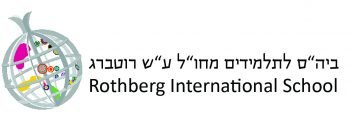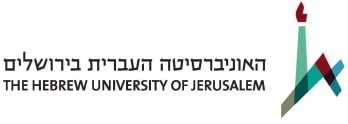From Indigenous Language Revival to Collaboration with the WZO
Hebrew University’s Rothberg International School (RIS) Division of Hebrew Language Instruction is engaged in a wide range of exciting teacher-training collaborations. From working with the indigenous people of northern Scandinavia to revive the Sami language to partnering with the World Zionist Organization (WZO) to instruct international Hebrew language teachers, RIS’s Hebrew Division is engaged in raising the bar for nonnative language instruction.
Reviving the Sami Language in Norway
The Sami are an indigenous people of northern Scandinavia living in Norway, Finland, and Russia. In the past, the governments of that region actively suppressed Sami culture, forbidding the Sami to use or teach their indigenous language. This policy has since changed, and now the Sami in Norway are working to revive their native language as a means of strengthening their identity and forging a deeper connection with their unique culture. During the initial stages of their research, representatives of the Sami received recommendations to use the ulpan method of Hebrew language instruction as a model. Israel’s process of transforming Hebrew from a language used only in prayers and holy books into a spoken language – and one of Israel’s national languages – is extremely relevant to the Sami. This is why the Sami contacted the experts in the ulpan method at the RIS Hebrew Division.
A statement from Senior Teacher Tzooki Shai and Administrative Director Orit Toeg explains: “Our relationship with the Sami began three years ago, and it is continuing successfully to this day. We hold training courses for groups of Sami teachers at the beginner and advanced levels, both in Jerusalem and in Norway.” In addition, the division helps these teachers prepare study materials and build curricula. For example, the first Sami textbook is currently being written in collaboration with and under the guidance of the RIS Hebrew Division.
“This has been an exciting project,” Shai and Toeg note. “The challenge is to impart second-language teaching strategy while not actually speaking the language that needs to be taught. We can do this by placing an emphasis on principles, demonstrations, and practical experiences.” Communication between instructors and students takes place in English. “In light of the success of this project with the Sami,” say Shai and Toeg, “we hope to enter into similar collaborations in the future.”
World Zionist Organization Teacher Training
The RIS Hebrew Division is the premier institution in Israel for training instructors to teach Hebrew as a non-native language. “Textbooks written by the RIS Hebrew Division are used by many teachers in ulpan programs and universities worldwide,” Shai and Toeg say. This is why the World Zionist Organization contacted the division last year with a request to train non-native Hebrew speakers from abroad in the Teacher Emissary Program, as instructors of Hebrew as a second language.
This cooperation helps meet the growing need to train Hebrew teachers in other countries. “We hope to continue this work and thereby help raise the standards of Hebrew teaching abroad to meet the standards in effect at Hebrew University, and in this way expand the professional relationships between the RIS Hebrew Division and Hebrew teachers and educational institutions in the Diaspora,” Shai and Toeg emphasize. A typical student in this program is a non-native (but advanced) Hebrew speaker with an academic background, teaching experience, and strong ties to Israel, its culture, and its language.
Part one of the training course was held in Paris, while part two took place at RIS in Jerusalem. “The course was a great success,” Shai and Toeg note. “It was attended by teachers from France, Russia, Ukraine, and South America.” Additional courses will be held later this year as well as next year, and remote learning options are available to individual teachers in England and Argentina. Learn more about the RIS Hebrew Division.
Hebrew University Quick Facts
Founded: 1918 (opened 1925)
Senior Faculty Members: 1,000
RIS Students: 2,300
Total HebrewU Students: 22,000
Faculties: 7
Schools: 14
Academic Departments: 315
Research Centers: 100+
Alumni: 100,000
Nobel Prizes: 8
Fields Medal for Mathematics: 1
Israel Awards: 269
Wolf Prizes: 9
EMET Prizes: 33
Rothschild Prizes: 89
Apply to RIS
Hebrew University’s Rothberg International School offers you a challenging and rewarding academic environment to help you achieve your goals. Our tailored, flexible programs offer short- and long-term study opportunities.

